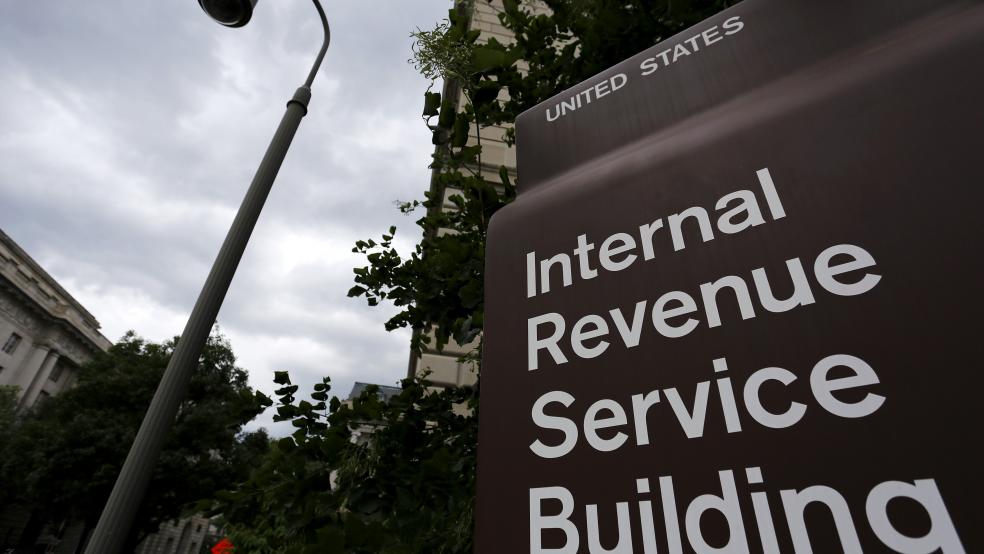Fulfilling a longstanding vow, the first bill passed in the Republican-controlled House in the 118th Congress aims to rescind most of the $80 billion in funding for the IRS provided by the Inflation Reduction Act last year.
“As part of the House Republican Commitment to America, I promised we would vote to repeal the Democrats’ army of 87,000 IRS agents on our very first day in the majority,” House Speaker Kevin McCarthy (D-CA) said in a statement after the vote. “Promises made. Promises kept.”
The bill, which passed on a party-line vote of 221-210, would rescind about $71 billion of the money provided for the IRS by Democrats last year but would keep the $3.2 billion meant to improve IRS customer service and $4.8 billion to modernize the agency’s technology.
The Congressional Budget Office estimated yesterday that the repeal bill would wipe out nearly $186 billion in revenue, resulting in a net deficit increase of $114 billion over a decade.
The Democratic-controlled Senate is not expected to take up the legislation.
Dueling views of the IRS: Republicans have portrayed the IRS funding — falsely, many critics argue — as a threat to families and small businesses, which in their telling would soon face a ruthless army of thousands of new tax enforcement agents. Rep. Jeff Duncan (R-SC) said the IRS funding has but one sinister purpose: “To go after small businesses, hard-working Americans to try to raise money for reckless spending, reckless spending that has caused $31 trillion in debt in this nation,” he said, per the Associated Press.
Democrats and many tax experts say the additional funding is necessary following years of budget cuts, especially to address cheating by the wealthy, and that Republicans are grossly exaggerating if not wholly fabricating the threat of a reasonably well-funded tax agency. “This debate about IRS lends itself to be the most dishonest, demagogic rhetoric that I have seen in the Congress at any point in time,” Rep. Steny Hoyer (D-MD) said.
Former IRS Commissioner Charles Rettig — who was appointed by a Republican president in 2018 — spoke in favor of the extra funding. Last spring, Rettig told Congress that the IRS budget was more than 15% smaller than it was a decade ago once inflation is taken into account, and that its staffing level of roughly 79,000 employees was close to 1974 levels. Before leaving office in November, Rettig said the money would help the agency in numerous ways while making it “even less likely for honest taxpayers to hear from the IRS or receive an audit letter.”
Nina Olson, who served as the national taxpayer advocate for 18 years, echoed Rettig’s view, saying the extra funding would make the IRS operate more efficiently through better training and technology, in ways that would benefit the large majority of honest taxpayers. Without the funding, the IRS would continue to function, but “in ways that’s going to harm taxpayers,” she told The Wall Street Journal.
Biden’s veto threat: The White House was sharply critical of the GOP bill and said President Joe Biden would veto the legislation in the unlikely event that it made it through the Senate to his desk.
“Far from protecting middle-class families or small businesses, [the bill] protects wealthy tax cheats at the expense of honest, middle-class taxpayers,” the Office of Management and Budget said in a statement. “With their first economic legislation of the new Congress, House Republicans are making clear that their top economic priority is to allow the rich and multi-billion dollar corporations to skip out on their taxes, while making life harder for ordinary, middle-class families that pay the taxes they owe.”
What’s at stake? Republicans maintain that the IRS funding will be used to hire thousands of new agents, many of them armed, who will harass ordinary citizens. But dozens of analysts (see a long list of them in this USA Today review) have concluded that that interpretation is false.
Rep Lloyd Doggett (D-TX) charged that GOP lawmakers are really interested in protecting the rich, including former president Donald Trump, who stands accused of abusing the tax system for personal gain. “Republicans’ claimed interest in law and order seems to vanish when it comes to tax fraud by the wealthiest few,” Doggett said, adding that the Republican bill should be renamed the “Protect Donald Trump and His Tax-Cheating Cronies Act.”
Make that four Pinocchios: Saying that the Republicans’ first successful bill “is based on a repeatedly debunked falsehood,” The Washington Post’s fact checker, Glenn Kessler, re-entered the fray this week, providing a second round of analysis of the Republican claim that the IRS will be hiring 87,000 new agents. “We originally gave this claim Three Pinocchios,” Kessler wrote Tuesday, referring to the Post’s system of rating falsehoods. “But now, after repeated fact checks, there is really no excuse, and we are upping the rating to Four Pinocchios.”
Republicans are showing they will focus on the IRS: “Even if, as expected, the GOP bill doesn’t become law, the IRS will be under the microscope during congressional hearings,” says The Wall Street Journal’s Richard Rubin. “President Biden’s pick to run the agency, Danny Werfel, will soon have a confirmation hearing in the Senate. And the IRS is scheduled to release an implementation plan for the $80 billion as early as next month.”
This is a probably sign of other funding fights to come: “Republicans are newly empowered to try to force spending cuts — and with fresh eagerness to do so under a Democratic administration. And the party will apparently have to contend with a small but potentially powerful faction that’s unconcerned about how these issues might play for middle-of-the-road voters,” writes The Washington Post’s Aaron Blake. “And the fact that the GOP saw fit to launch its new House majority by voting to defund the IRS based on hyperbolic claims seems to say plenty about where things could go from here.”





